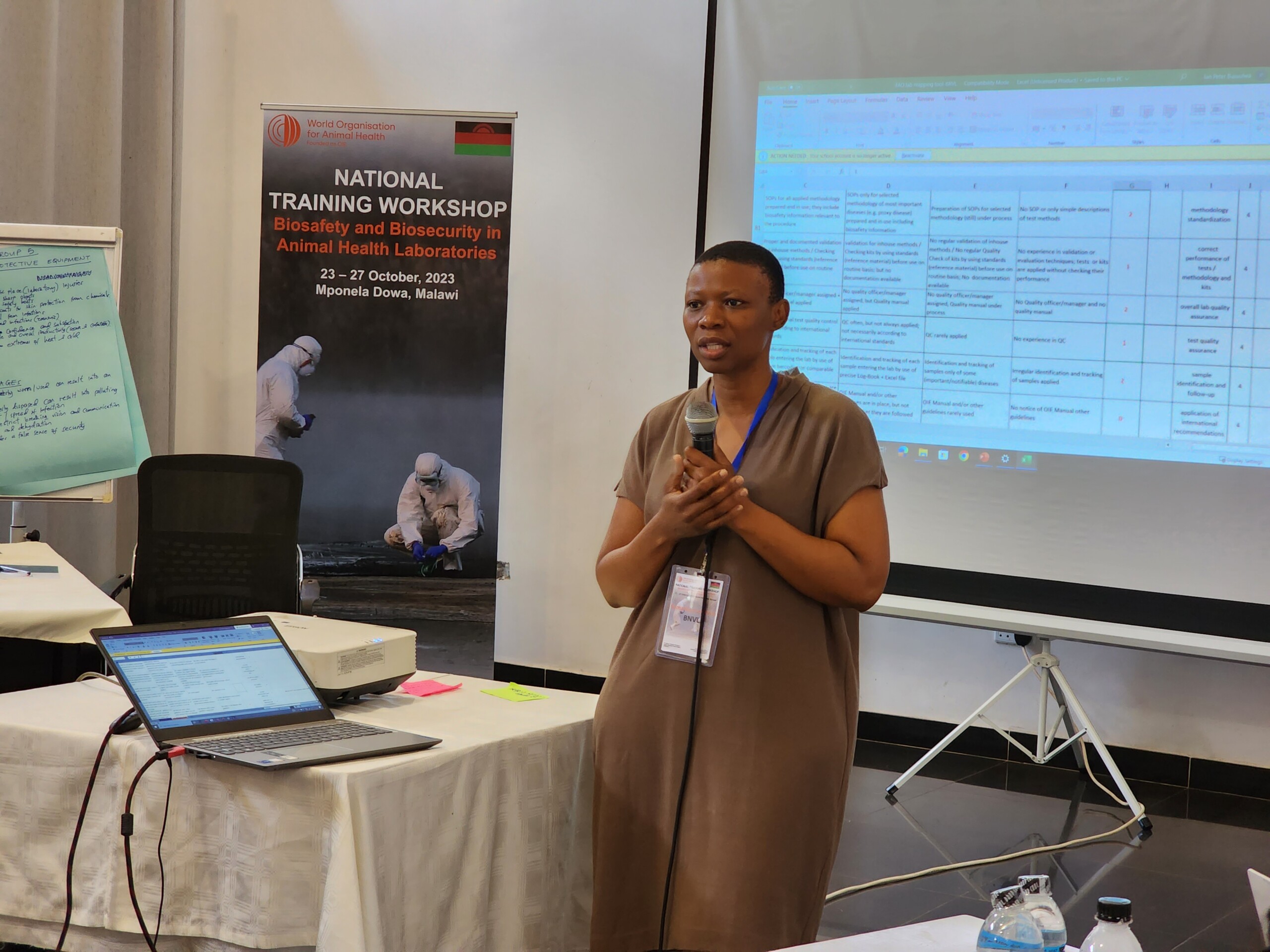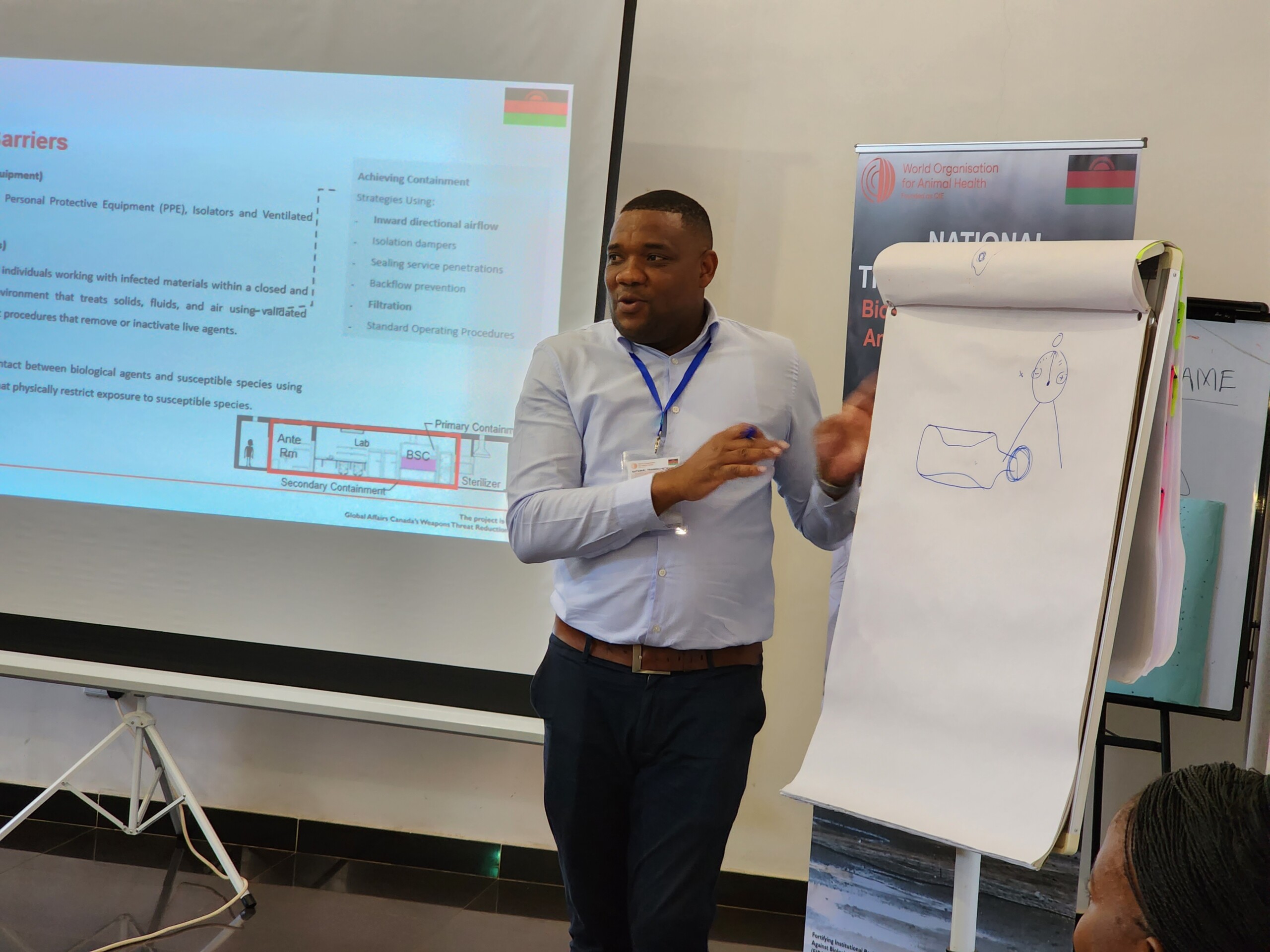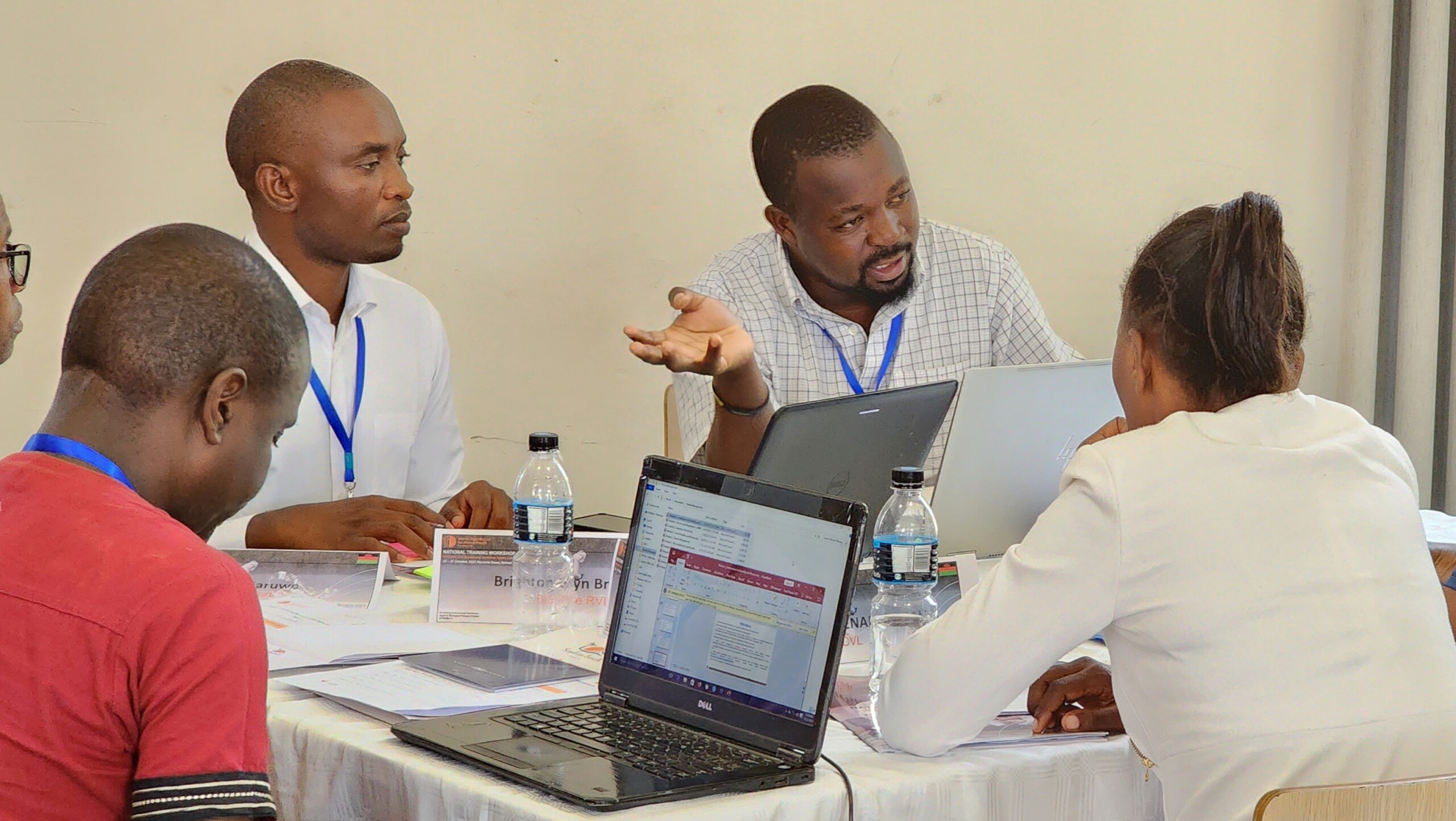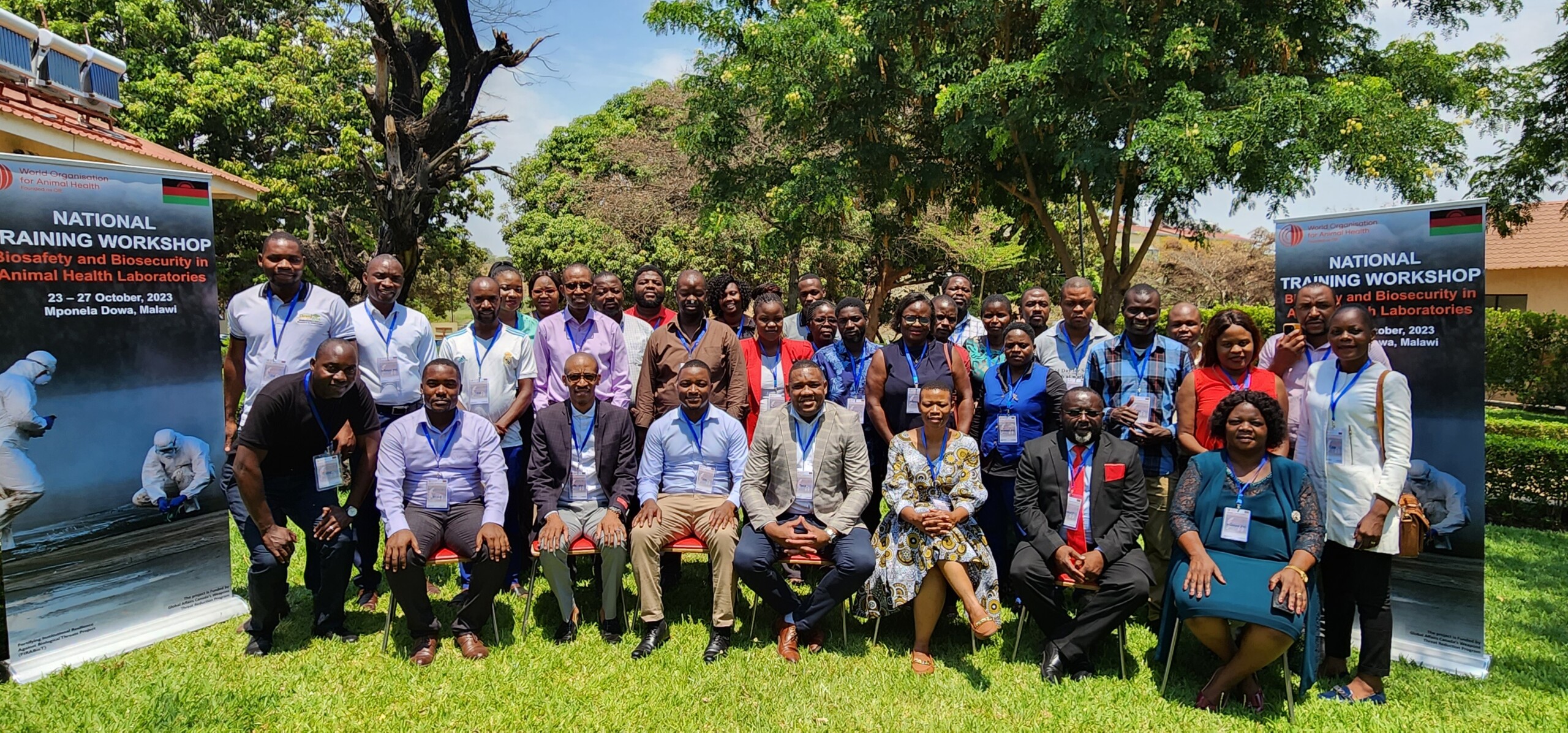
Personnel from Malawi’s central and regional veterinary laboratories recently participated in an extensive training programme on biosafety and biosecurity in animal health laboratories, organized by the World Organisation for Animal Health (WOAH). The training, held from 23-27 October 2023, in Mponela Dowa, Malawi, aimed to provide participants with knowledge and skills in biorisk assessment, mitigation, and sustainable biocontainment measures.
The participants included scientists from the Central Veterinary Laboratory and two regional veterinary laboratories in Blantyre and Mzuzu. Additionally, representatives from the Public Health Institute of Malawi and Malawi Police Service attended the workshop. Facilitators for the training were from WOAH Reference Laboratories, namely the Agricultural Research Council – Onderstepoort Veterinary Institute (ARC-OVI) and the Botswana National Veterinary Laboratory (BNVL). Africa CDC Regional Subject Matter Experts on Biorisk Management, Biological Waste Management, and Design and Maintenance of Facilities Handling High Risk Pathogens (Biocontainment Engineering) also served as facilitators.
Mr Zibusiso Masuku – an Africa CDC Regional Subject Matter Expert on the Design and Maintenance of Facilities Handling High Risk Pathogens (Biocontainment Engineering) explaining the pressure difference principles in biocontainment. Picture © I. Busuulwa (woah) 2023
As part of the training, participants engaged in exercises that involved hazard identification, a comprehensive assessment of the laboratories’ biosafety and biosecurity practices, identifying potential mitigation strategies.
Participants engaging in a group discussion at the workshop. Picture © I. Busuulwa (woah) 2023
This biosafety and biosecurity training is part of Malawi’s initiatives under WOAH’s Fortifying Institutional Resilience Against Biological Threats (FIRABioT) Project. Launched in March 2023, the project aims to enhance the abilities of WOAH Members, particularly in Africa, to respond to emergencies, including agro-crime and agro-terrorism events. It achieves this goal by implementing capacity-building activities in emergency management, disease intelligence, sustainable laboratories, and veterinary legislation.
The FIRABioT project is funded by Global Affairs Canada’s Weapons Threat Reduction Programme – in support of the Global Partnership Signature Initiative to Mitigate Biological Threats in Africa.





